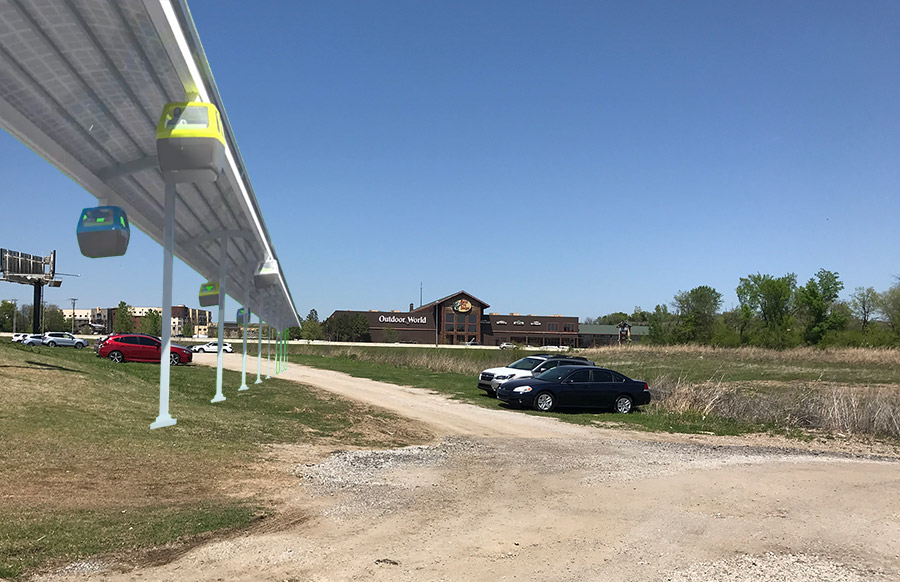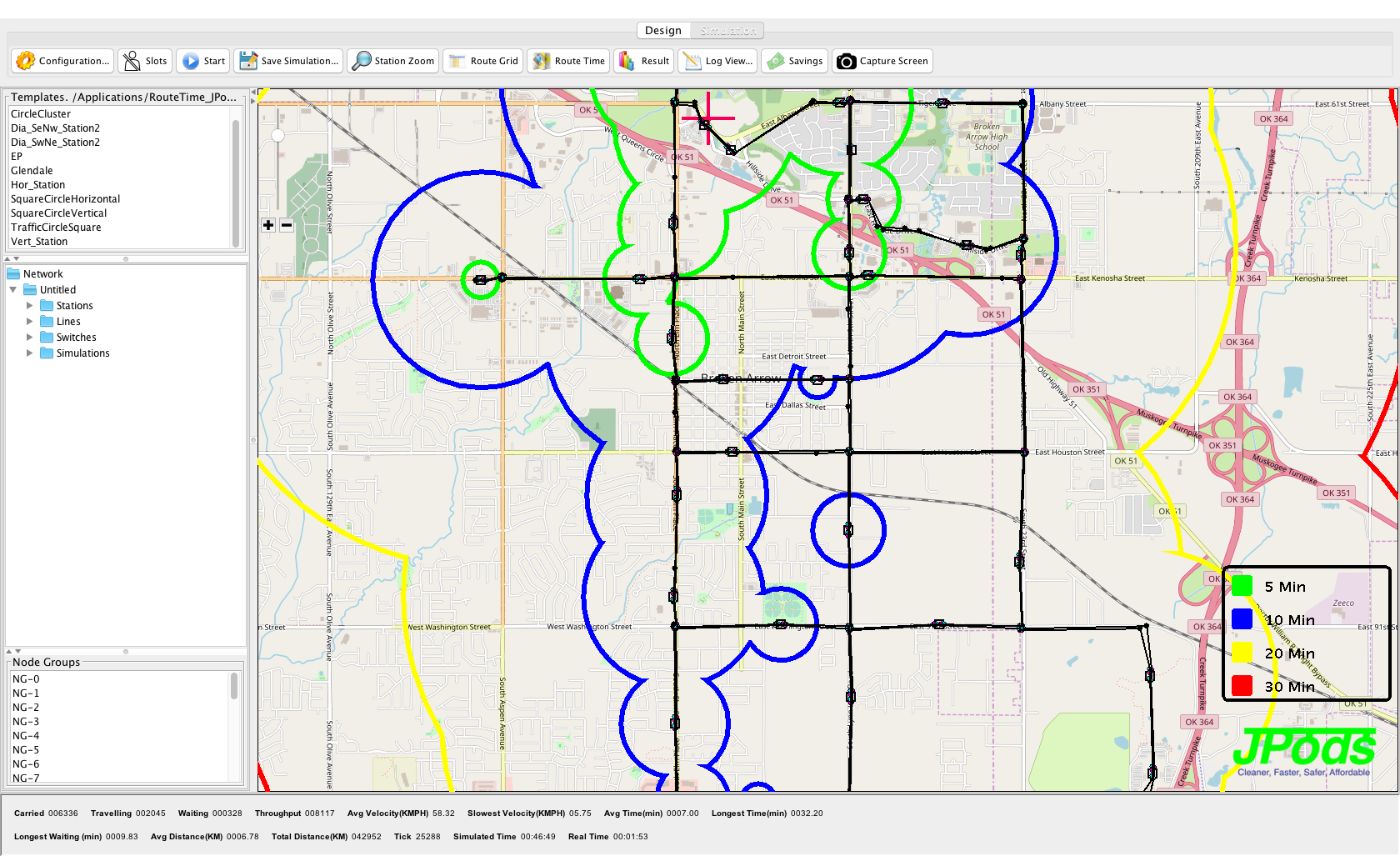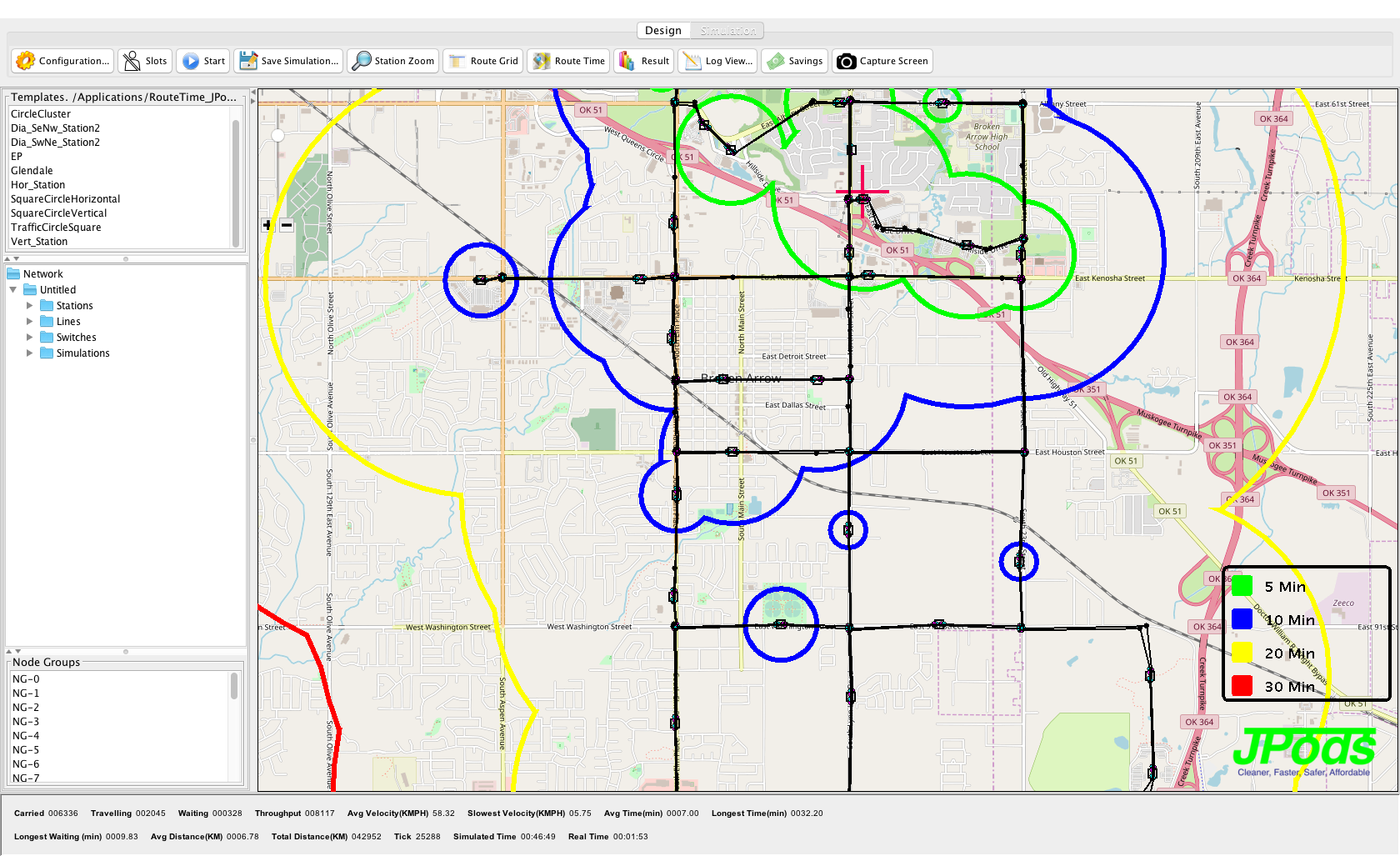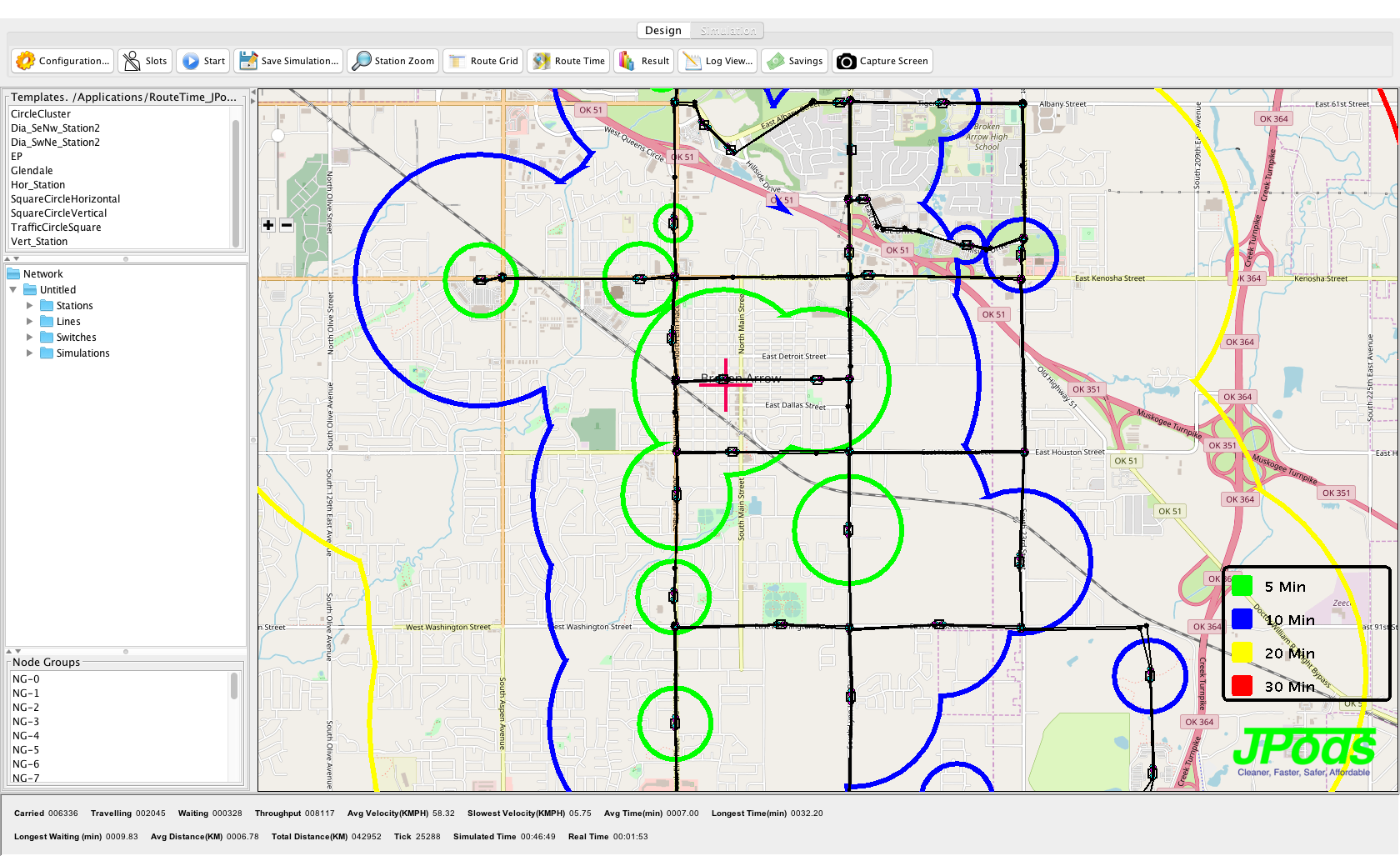Broken Arrow
Turning $12.7 billion/year in Oklahoma traffic costs into Oklahoma jobs
Traffic costs the people of Oklahoma $12.7 billion/year. At least $7 billion per year of these costs can be recovered as customer savings, profits, and jobs building networks that combine the efficiency of freight rail with the on-demand service of the Internet.
- $ 8.8 billion per year for oil.
- $ 3.5 billion per year of accidents
- $ 1.2 billion per year for congestion
In 2017 about $28 billion was invested in mobility startups such as Uber and self-driving cars. These innovations apply digital technologies to improve mobility communication and digitize vehicles. In contrast JPods, Hyperloop, ET3, and others will digitize the mobility networks. This ditizing of mobility networks is likely become known as the Physical Internet®.
Crossing US 51 near Bass Pro, Broken Arrow, OK.

3D illustration of traveling on Kenosha Street, Broken Arrow, OK
3D illustration of traveling on Kenosha Street, Broken Arrow, OK
Starting at the Rose District on Main Street, moving to Elm Street, the Hospitality District, Hospital, Bass Pro, Target, and back to the Rose District.
Links to:
- MIT’s Climate CoLab selection as semifinalist: Solar Mobility Act: Rights of Way Access for Solar-Powered Mobility Networks
- Success of Morgantown’s Personal Rapid Transit (PRT or podcar) network. This network opened 42 years ago (1975). In that period it has delivered 110 million oil-free, injury-free passenger-miles. In that same period 1.7 million Americans died on roads. As the Federal communications stifled innovation in the century of rotary telephones,
- 10x Capacity
- 1000x Safety
- 100% Solar Powered
- Boston City Council Hearing 2015
- Progress for building Solar-Powered Mobility Networks in Bengaluru, India:
- JPods Robotics and Network Software on SkyRide
Following are images and clips of a JPods network in Broken Arrow. If cities and the State of Oklahoma act quickly to create a regulatory framework that allows innovation, the Oklahoma may become to the Physical Internet what Omaha is to railroads, Detroit is to cars, and Silicon Valley is to computers.




